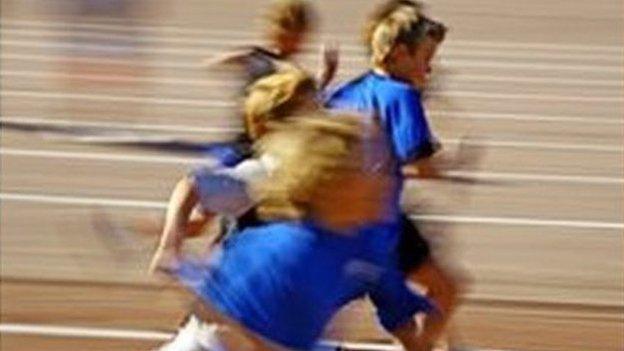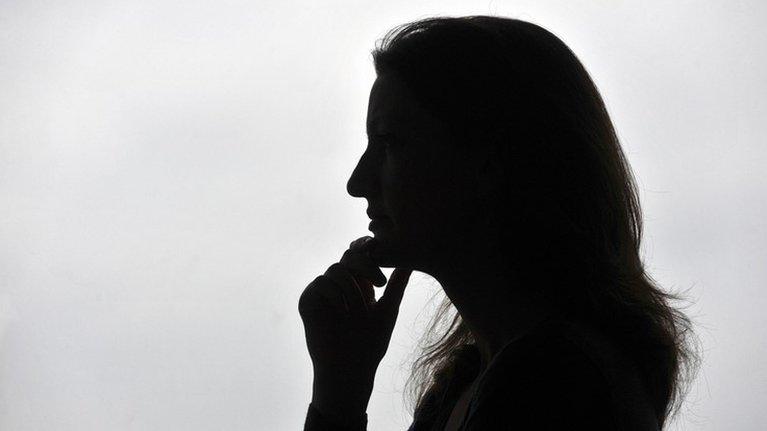Single-sex schools 'must adapt for transgender pupils'
- Published

Single sex schools face particular issues in accommodating transgender students, a conference has heard
Single-sex schools must find a way to accommodate pupils who come out as transgender, a teachers' union conference has heard.
The Association of Teachers and Lecturers has voted to lobby for better training on the issue for school staff.
Schools were "ill-prepared" for such issues, one teacher told the gathering.
But practical steps to modify changing facilities, toilets and uniforms are straightforward, say teachers with experience of supporting these pupils.
Graham Easterlow, a teacher at residential school in North Yorkshire for boys with learning disabilities, said one of his pupils came out as a transgender female during the past academic year.
"The interesting thing is that I don't think it was difficult for the pupil. The pupil was absolutely aware - she was extremely clear and knew exactly how she wanted to identify," he said.
'Ill-prepared'
"The challenge came when we realised that the school was facing an issue for the first time and there was no precedence. There was no process to support that particular coming out.
"That's the difficulty. Schools are ill-prepared. And there is a blind spot on that particular issue."
Mr Easterlow suggested a "strong, open dialogue" with the young person themselves, with questions about how they wanted to be known and what support they needed.
He suggested adaptations in toilets and changing facilities for transgender people should be viewed in the same way as adaptations for the disabled.
In the end it was very simple, said Mr Easterlow, and the school provided the facilities that were necessary.
He said the head teacher and most of the staff were clear: "This is not that big an issue. Let's not treat it like it's an issue."
'A fad'
Mr Easterlow said pupils were more accepting of the change than some older members of staff who suggested the school was "pandering to a fad".
He said he was "able to point out to them" that from next year schools will have "a public sector duty" to promote gender equality, including for transgender people.
During the debate, a teacher at a girls' school in Berkshire, Helen Porter, spoke of two students who told the school they wished to do their A-levels as young men.
There was little advice available to the school, said Ms Porter, but it managed to accommodate them.
One left school early but the other became the school's first ever male A-level student, leaving with excellent grades.
Mr Easterlow said the student at his school was in their last year at school.
He said she told him: "In eight months' time, I'm not going to be in education. I have to go through this process now and you are the right people to support me so that, when I leave school, I am the best prepared I can be to achieve the things I want."
He suggested it could be harder for people in single-sex school to come out as trans.
"I wouldn't be able to quantify it, my feeling is probably yes."
In his own particular school it could be particularly difficult, he believes.
"We're a school that has motor mechanics, a huge design and technology department and we really like rugby. That's not really a very feminine environment."
Mr Easterlow suggested that the issue was difficult for all schools, but said a greater understanding of gender diversity was needed "across the board".
He said it was vital not dismiss transgender pupils as just being in a phase or to insist that they wear "correct uniform".
"I long for a point where it just doesn't matter who you love, it doesn't matter how you identify, but in schools we get the best education to the young people that they can and for them to achieve the best they can be."
- Published14 January 2016
